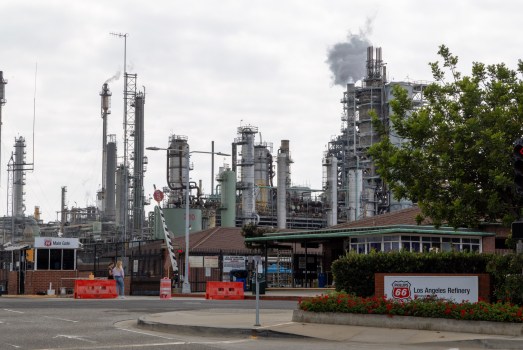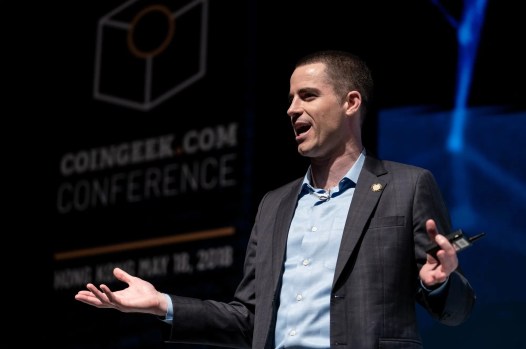The U.S. Attorney’s Office said Thursday, Nov. 21, that Phillips 66, which last month declared its intention to shut down its refineries in the Los Angeles area by the end of 2025, was indicted on Wednesday for allegedly dumping hundreds of thousands of gallons of industrial waste into the Los Angeles County sewer system from its Carson oil refinery during the pandemic.
According to documents filed in federal court in Los Angeles, the oil refiner is accused of two counts of negligently violating the Clean Water Act and four counts of knowingly violating the 52-year-old federal law that regulates pollution in US waterways. Federal attorneys say the refiner failed to notify authorities of violations.
U.S. Attorney Martin Estrada stated during a conference call Thursday that Phillips 66 is anticipated to be charged in US District Court in downtown Los Angeles in the upcoming weeks. The indictment, delivered by a grand jury on Nov. 20, did not name any officials of the Houston-based energy giant.
Phillips 66 faces a statutory maximum penalty of five years probation on each count and a possible fine of $2.4 million if found guilty of all charges.
Estrada clarified that a judge can impose any number of probationary requirements on a business to guarantee adherence to the Clean Water Act, but he did not provide any examples. Even if the business is no longer operating in California, a company on probation is subject to increased regulatory scrutiny and must prove compliance to avoid additional penalties.
The claims of dumping are also being looked into by the US Environmental Protection Agency.
We are sending a message with these charges. According to Estrada, both individuals and corporations must take their responsibilities to safeguard the environment seriously.
Neither LA City Councilman Tim McOsker, whose district covers the Wilmington region, nor a Phillips 66 representative returned calls or emails on Thursday.
The Phillips 66 indictment, which included two felonies and four misdemeanor charges, was described by Estrada as unusual for our office.
According to a representative for Estrada’s office, the Phillips 66 indictment marks the first felony Clean Water Act prosecution the US Attorney’s office has pursued since 2001.
In that instance, the old Texaco Refining and Marketing branch in Los Angeles was fined $4 million after entering a guilty plea to two felony Clean Water Act violations. Additionally, Texaco, which was later acquired by Chevron Corp., acknowledged that its workers intentionally released wastewater into the Dominguez Channel from a Texaco refinery in southern LA County that included more oil and grease than was allowed.
A month after the Houston-based oil tycoon announced intentions to idle 600 workers and 300 contractors and close facilities in Carson and Wilmington, Phillips was indicted. Additionally, the business engaged two real estate companies to create possible uses for the property.
According to Estrada, his office and other investigators looking into the purported releases in November 2020 and February 2021 think the majority of the wastewater was captured by the LA County Sanitation Districts’ Joint Water Pollution Control Plant in Carson before it reached the ocean.
In addition to smelling the oil and grease in the air, Estrada said LACSD staff conducting routine testing and maintenance at the Carson treatment plant discovered discharges in two other occurrences.
According to Estrada, the two instances of dumping involved the following:
Over the course of two and a half hours on Nov. 24, 2020, employees at the Carson treatment plant discovered that Phillips 66 had released over 310,000 gallons of wastewater including 64,000 pounds of oil and grease into the county’s sewage system. That was over 300 times the amount of oil and grease that was allowed. In a letter to Los Angeles County Sanitation Districts the next month, a Phillips 66 management admitted that his company had released industrial effluent that was not in compliance and promised to retrain operations staff to ensure that this wouldn’t happen again.
LACSD personnel at the Carson sewage plant uncovered a second incident a few months later. On Feb. 8. 2021, the Carson refinery discharged 480,000 gallons of wastewater, which contained at least 33,700 pounds of oil and grease, into the county s sewer system, over a five-and-a-half-hour period.
According to Estrada, the illicit oil and grease spills in both instances were probably not deposited into the Pacific Ocean. Estrada stated, “We think the county caught all of the contaminated wastewater.”
According to Estrada, microbial bugs that consume waste items prior to the discharges being released into the ocean helped with the cleanup work.
Polluted land
Relevant ArticlesWhen ‘compostables’ are actually garbageGoogle unveils unique and eco-friendly mass timber Sunnyvale officeLawrence Livermore supercomputer is crowned world s speediestWould more logging in the Pacific Northwest help curb wildfires?How to save $2 million a day and remove radioactive waste from earthquake countrySince Phillips 66 announced plans to close its Los Angeles area refineries, the Los Angeles Water Quality Board has raised concerns about polluted land on the 650 acres that make up the Wilmington and Carson complex, an industrial backbone near the Port of Los Angeles.
Last month, Phillips 66 hired two development firms to envision what could be built on the sprawling complex dating to the early 1900s. A labyrinth of pipes, tanks and an assortment of machinery processes crude oil into gasoline, kerosene and jet fuel. The energy company hired Catellus Development Corp. in Oakland and Deca Cos. in Sacramento to help figure out its next steps.
Experts previously said remediation of the heavily polluted industrial site could take years, as Phillips has processed oil here for a century. The starkest assessment of the pollution on the site came from the water quality board.
In an emailed statement,the board wrote that significant amounts of contamination exist on the 650 acres that make up Phillips 66 refinery sites in Wilmington and Carson, and that it will probably take years to clean up the soil and groundwater.
Note: Thank you for visiting our website! We strive to keep you informed with the latest updates based on expected timelines, although please note that we are not affiliated with any official bodies. Our team is committed to ensuring accuracy and transparency in our reporting, verifying all information before publication. We aim to bring you reliable news, and if you have any questions or concerns about our content, feel free to reach out to us via email. We appreciate your trust and support!




